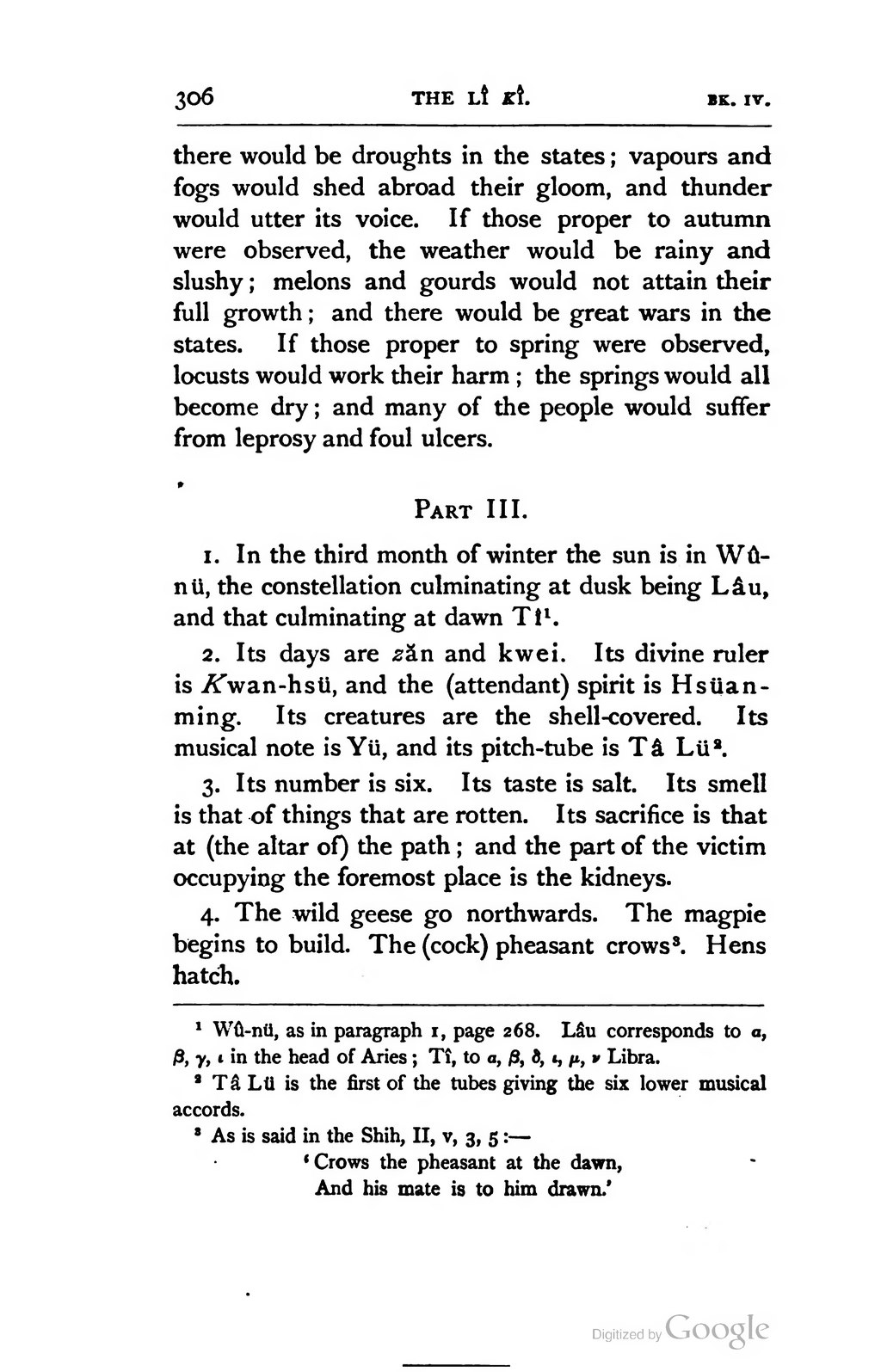there would be droughts in the states; vapours and fogs would shed abroad their gloom, and thunder would utter its voice. If those proper to autumn were observed, the weather would be rainy and slushy; melons and gourds would not attain their full growth; and there would be great wars in the states. If those proper to spring were observed, locusts would work their harm ; the springs would all become dry; and many of the people would suffer from leprosy and foul ulcers.
Part III.
1. In the third month of winter the sun is in Wû-nü, the constellation culminating at dusk being Lâu, and that culminating at dawn Tî[1].
2. Its days are zǎn and kwei. Its divine ruler is Kwan-hsü, and the (attendant) spirit is Hsüan-ming. Its creatures are the shell-covered. Its musical note is Yü, and its pitch-tube is Tâ Lü[2].
3. Its number is six. Its taste is salt. Its smell is that of things that are rotten. Its sacrifice is that at (the altar of) the path; and the part of the victim occupying the foremost place is the kidneys.
4. The wild geese go northwards. The magpie begins to build. The (cock) pheasant crows[3]. Hens hatch.
